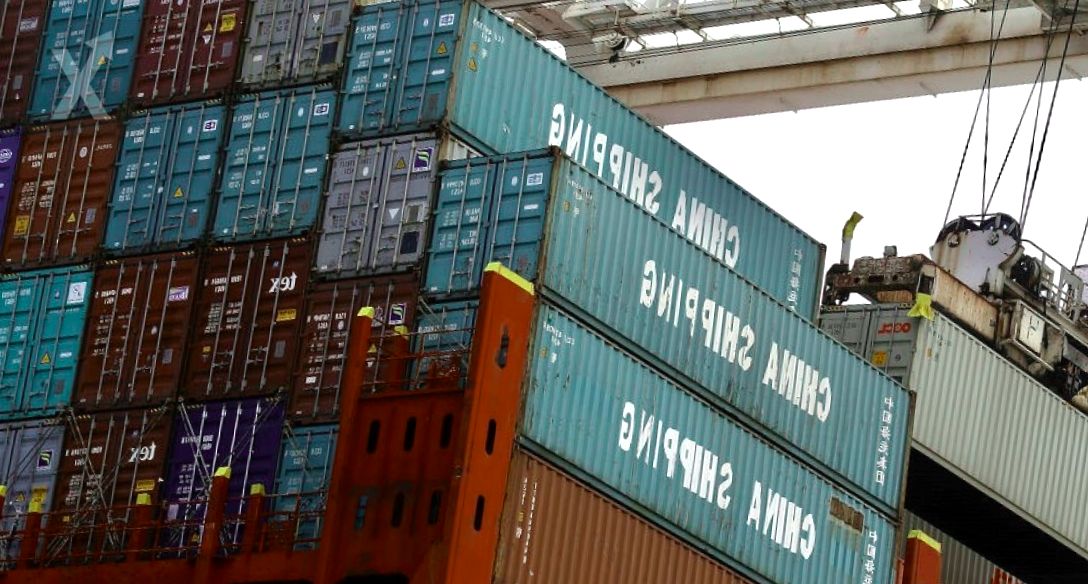China Will Not Back Down in the Battle Against U.S. Tariffs

China reaffirmed on Tuesday its commitment to confronting the tariffs imposed by the United States "until the end," in response to recent threats from President Donald Trump to impose new tariffs, intensifying the trade war between the two largest economies in the world. Despite concerns about a potential global recession stemming from these tariffs, which already caused a "Black Monday" in the stock market, Trump appears determined to continue implementing his aggressive trade strategy without hesitation.
Unstable MarketsIn reaction to the recent imposition of tariffs, China, positioning itself as the main economic competitor to the United States and a key trading ally, announced a new 34% tariff on U.S. goods that will take effect on Thursday. Immediately, Trump countered with the threat of increasing tariffs, potentially bringing the total U.S. tariffs on Chinese products to 104%. "I have great respect for China, but they can't proceed this way," Trump commented from the White House. For its part, China condemned the "pressures, threats, and blackmail" from the U.S., according to Lin Jian, spokesperson for the Ministry of Foreign Affairs. Additionally, a representative from the Ministry of Commerce warned that "the threats of increasing tariffs by the United States are consequential mistakes and demonstrate the U.S. blackmailing character." "While the U.S. decides to follow its own path, China will fight to the finish," he specified, adding that the country will take "countermeasures" to safeguard its "rights and interests," while also insisting on the necessity of "dialogue." Ursula von der Leyen, President of the European Commission, urged to avoid an "escalation" and promote a negotiated solution to the current situation, in order to sustain a trade system that is reformed, free, fair, and balanced. On this day, markets started to recover slightly following Monday's widespread losses in Asia, Europe, and the United States. In Asia, Tokyo soared more than 6% after suffering an 8% drop in the previous session. In Europe, major indices returned to positive territory, with Paris (1.4%), London (1.74%), Frankfurt (1.37%), and Madrid (0.80%) climbing around 11:00 GMT. Analysts are concerned about the possible repercussions of this trade war, which could trigger more inflation, unemployment, and a stalling in growth. Trump maintains that the U.S. economy has been "plundered" for years by other countries. Last week, he announced a general 10% tariff on all imported products, in addition to specific tariffs by country, such as those from the European Union (20%) and Vietnam (46%), which would take effect on Wednesday. The 27 EU countries are seeking a unified response and proposed on Monday a complete and reciprocal exemption of tariffs for industrial products, including cars. "No, it's not enough," Trump responded, frequently criticizing Europe for not purchasing enough U.S. industrial goods. According to Treasury Secretary Scott Bessent, the tariffs announced on April 2 are part of a strategy to fortify the U.S., as he communicated to Fox News. Bessent mentioned that once they receive assurances from other countries on how they will further open their markets to U.S. products, "President Trump will be ready to negotiate," highlighting that "nearly 70 countries" have already approached Washington.
The current situation between the U.S. and China underscores the complexity of international trade and its effects on the markets. Trade tensions not only disrupt consumer and business confidence but can also impact global economic growth. It is vital to establish constructive dialogues to prevent an escalation that could have severe repercussions for both economies and, consequently, for the balance of financial markets worldwide.





